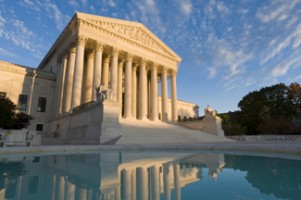Expert lawyering before SCOTUS is 'exceedingly lopsided' in criminal cases, law review article says

U.S. Supreme Court expert litigators argue a majority of civil cases before the U.S. Supreme Court, but in criminal cases the expertise is “exceedingly lopsided,” according to a law review article that examined the backgrounds of lawyers representing criminal defendants before the U.S. Supreme Court.
Harvard law professor Andrew Manuel Crespo found that, in the last 10 years ending in 2015, lawyers arguing on behalf of criminal defendants before the U.S. Supreme Court had an average of 5.3 previous arguments before the court, the New York Times reports in a Sidebar column. The average number of arguments for a lawyer appearing in a noncriminal case was 12.3. His findings are in the Minnesota Law Review.
During the 10-year period, two-thirds of criminal defendants were represented by “novices”—lawyers who made only one argument before the Supreme Court during that time, and who were not identified in a prior study of experienced advocates reaching back to the 2000 term.
State and local prosecutors were even more inexperienced in Supreme Court arguments, but they were often assisted by lawyers with the U.S. Solicitor General’s office, Crespo notes. The federal lawyers participated in 72 percent of the criminal cases, either as amicus curiae or as a party, and they argued against criminal defendants 96 percent of the time.
Crespo identifies Stanford law professor Jeffrey Fisher as the only lawyer who argued more than two or three cases for criminal defendants in the high court over the decade. He has argued 25 cases, 18 of them for criminal defendants. The lawyer with the second highest number of arguments for criminal defendants was Thomas Goldstein, who argued for criminal defendants in four out of 21 cases. (The chart is at page 2010.)
The Supreme Court could help restore the balance, Crespo suggests, by routinely granting requests for oral argument by amici such as the American Civil Liberties Union and the National Association of Criminal Defense Lawyers.



